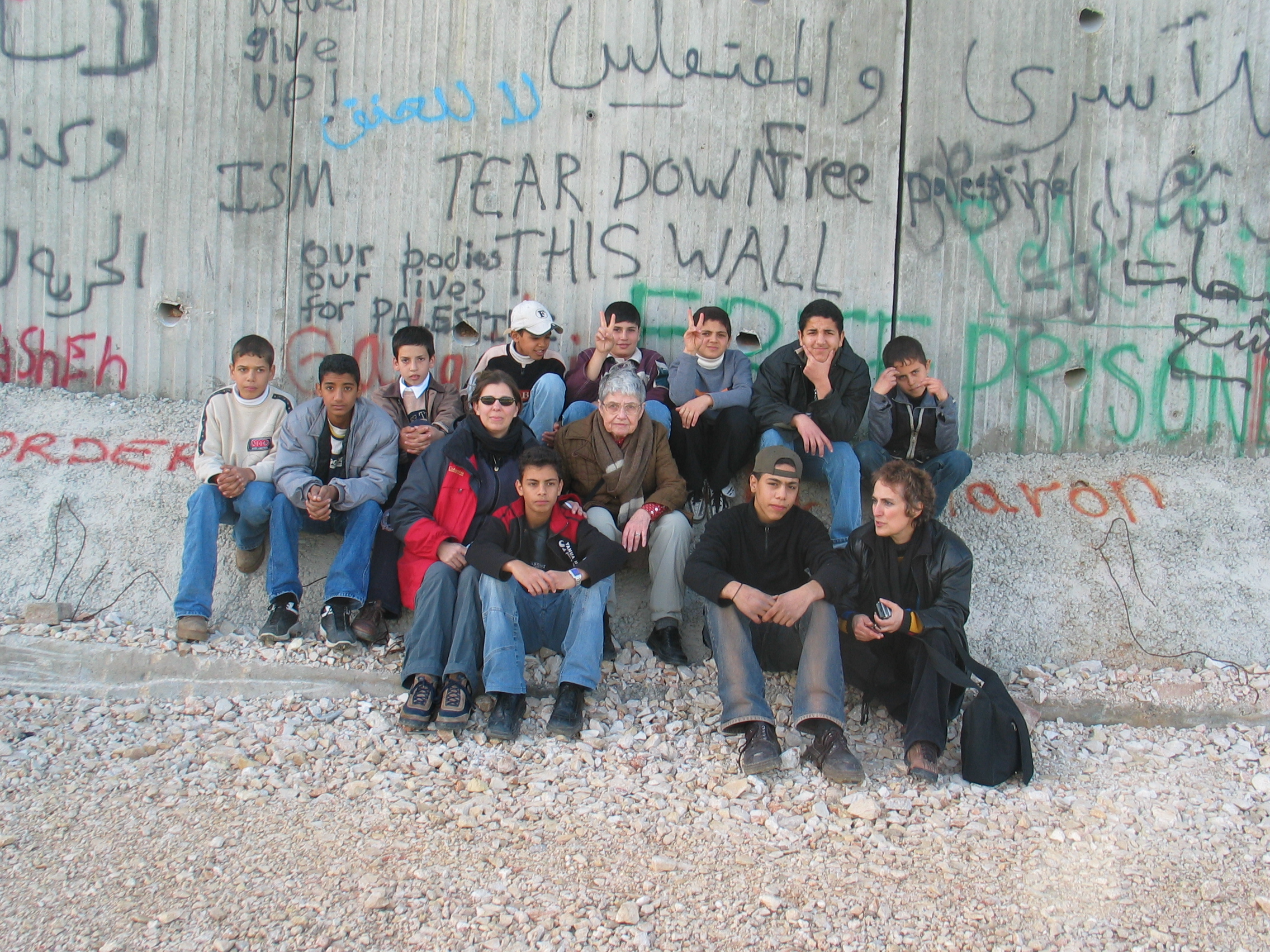Hedy Epstein spoke about her parents’ increasingly desperate attempts to leave Germany in the 1930s after Hitler came to power. She said her parents were willing to go anywhere, but Palestine was not an option for them. Prior to WWII, anti-Zionism was widespread among European Jews, but this was not the popular belief held by most Jewish residents of Kippenheim, Hedy’s home, where a Zionist youth group was formed. Hedy was the only Jewish child in the village who did not become a member of that group. In spite of others’ beliefs, the sentiment in the Wachenheimer home continued to be in opposition to the Zionist movement. At the time, Hedy did not fully understand the meaning of Zionism, but she knew her parents were opposed to emigrating to Palestine. Young Hedy absorbed her parents’ strong feelings and made them her own.
In 1948, at about the same time Hedy arrived in the United States, Israel became a state. Hedy wrote, “I was both happy about Israel becoming a State and, at the same time, fearful about what might happen as a result of it. Being new in this country, there were many new impressions and experiences, so Israel was not on the front burner for me then, or for many years to come. 1982, the massacres in the refugee camps Sabra and Shatila changed all that. I was horrified. I tried to learn and understand, all the time remembering my parents’ ardent anti-Zionism. As I learned and understood more of what was happening, I began to speak out publicly against the actions and policies of the Israeli government. Then in fall 2003, while participating in a weekly vigil against America’s war in Iraq, a friend asked me if I had ever thought about going to Palestine. ‘Yes, I am going.’ My spontaneous answer surprised me. Thinking about my response, I realized there is a time to learn, a time to talk, and then there is a time to act. And so, in December 2003, three other women from St. Louis and I were on our way to Palestine.”
Hedy and her companions underwent nonviolent resistance training with the International Solidarity Movement before traveling to several locations in the West Bank. They were provided housing with Palestinian families and participated in several demonstrations against the separation (apartheid) wall that was being constructed, including a demonstration in Masha where live ammunition was used against unarmed Israelis, Palestinians and internationals opposed to the barrier that separated the villagers from their agricultural lands. One of Hedy’s companions received a shrapnel wound that required medical treatment in an Israeli hospital.
Hedy traveled to the West Bank five times and made several attempts to visit Gaza, including as a passenger with the Gaza Freedom Flotilla aboard the U.S. ship The Audacity of Hope. Hedy was asked by many of the Palestinians she met during her trips to share with the American people what she had learned about life under occupation and what she herself witnessed in the West Bank. Hedy promised and she kept her word. She gave many talks about her trips to the West Bank and documented the hardships and the violence she witnessed. She spoke on university campuses and to religious and community organizations throughout the United States. She was invited to Ireland and to Germany to give presentations about her Palestine experiences. Hedy experienced very cruel and, at times, frightening responses to her talks and publications. Many of her Jewish acquaintances and some of her close Jewish friends in St. Louis were very critical of her positions and some referred to her as “a self-hating Jew.” Hedy was accused, sometimes directly and often in the media of being an “Israel hater.” Hedy responds to the accusation in the video clip below.
Although the backlash was hurtful, Hedy continued to speak out and tried to persuade others in positions of influence, including elected officials and the broader Jewish community, to better understand the reality of the situation in the West Bank and Gaza. Always committed to nonviolence, Hedy wrote, “Let me tell you that I condemn terrorism, no matter who the perpetrator. I condemn the horrific practice of suicide bombing with every fiber of my being. I equally condemn the Israeli state sponsored terrorism as it affects Palestinians and how it simultaneously destroys Israelis. To speak honestly and openly about the Israel/Palestinian situation one must go back to, and recognize that the Israeli military occupation continues a legacy that began in 1947…the violence suffered by Israelis and Palestinians will continue as long as the roots of the conflict remain, the occupation, displacement, the wall, the loss of lives on both sides.”
